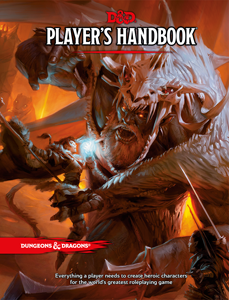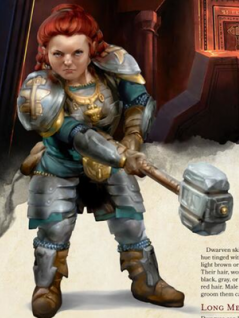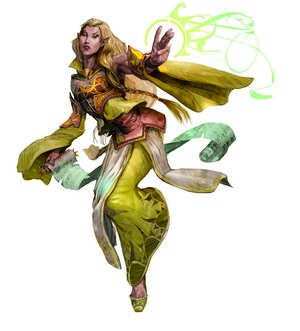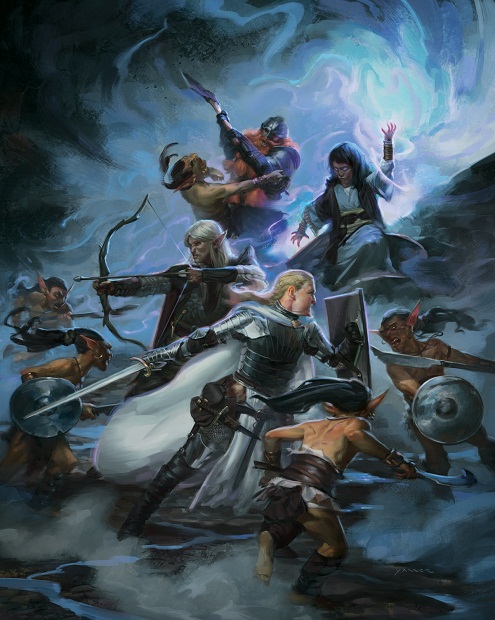I bought the new 5th edition Dungeons and Dragons players handbook. Having thought 4th edition was somewhat akin to the Jar-Jar Binks of D&D, I was excited to be excited by the game again.
I haven’t played it yet, but from my impressions reading the book, I already very much like what I see.

I have been playing D&D for over a decade, starting with 2nd, moving through 3rd and 3.5, then, like many, getting on the Pathfinder train once the I got downwind of 4th (For anyone who likes 4th, I apologize; not for my jokes, but for playing 4th). I had read some of the playtests, and played a session or two of The Keep on the Boarderlands module, but had forgotten much of my experience by the time I picked up the new PHB.
Two things immediately struck me reading the book; one, the rules are streamlined - which was one of their design goals, so kudos - and two, that this game has the most roleplaying encouragement since 2nd.

The Rules
When you hear streamlined rules, you may think dumbed down. I want to assure you that that is happily not the case. The rules have been designed to keep focus at the table, not in the rules, and while I haven’t tested them yet, I can already tell that they will speed up play. 3rd/3.5/Pathfinder will see the biggest difference, since those systems can get very weighty from its rule-for-everything design, but even 4th players will see an improvement, I think.
The killer app for rules has got to be Advantage and Disadvantage. Instead of every ability giving an arbitrary, numerical bonus or penalty to your roll, you get an elegant, named rule. If you have Advantage, you roll 2d20 and take the higher. If you have Disadvantage, do the same and take the lower. Done! It’s powerful, it’s clean, and it saves so much time.

A close second in terms of big rules improvements is the proficiency system, which ties into Base Attack Bonus (now Proficiency Bonus). Instead of having a table-based bonus progression that’s different for each class, now you have one bonus progression for all classes, and it applies to more than just combat. You gain your Proficiency Bonus for anything you are proficient with. You can be proficient with anything from different types of weapons, to skills, to even tools. This keeps the flavor and customizability of each class, while maintaining an easy number to reference.
Speaking of numbers, 5th harkens back to 2nd and earlier in terms of number scale. Gone are the days of bonuses that dwarf your die roll potential (see above); number bloat is kept on a tight leash. For instance, for the afore mentioned Proficiency Bonuses, everyone stays at the starting +2 for 4 levels, maxing out at +6. Also, the ability scores max out at 20 for PCs, and 30 for monsters. I’m really into this, because PC power bloat isn’t fun for the DM or the players, and by god, I want monsters to monstrous again. That’s why they’re monsters!
The Roleplaying
I was pleasantly struck by how deeply ingrained roleplaying was to this edition, which is not an easy feat to pull off, since getting hit is usually painful. There is plenty of fluff regarding the mythos of the world, which most editions have provided (when I say most, I am not looking at you, 4th). Here, however, they go the extra mile, by, for the first time in my memory, explicitly naming and integrating campaign settings in the core book.

To describe things, where appropriate, they will explain it in terms of several settings. For instance, in describing a race, they might say how that race fits into the various settings. The campaign settings mentioned are, to my memory, The Forgotton Realms, Greyhawk, Ebberon, Dragonlance, and a hint at Planescape. No mention of Dark Sun, which is too bad, because it’s a fun setting, but I guess they want to let 4th’s stink wash off first. I’m sorry, to all you 4th lovers, you must be mad. Yet, and I say this with love, I don’t care.
Conclusion
To wrap up, 5th edition is very good, and if you’ve played D&D in the past, you owe it to yourself to pick it up. If you haven’t played D&D, I really don’t know why you read this whole article. I count 4th players among that last category; you aren’t playing D&D.
I’ll be writing more on this topic soon, digging deeper into what the game has to offer, and continuing to make fun of the few 4th stragglers out there. Kick ’em while they’re down, I say!